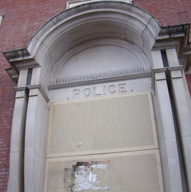Police forces have reduced costs since 2011, but do not have a clear understanding of the demands placed upon them or of the factors that affect their costs, according to an official report.
Amyas Morse, head of the National Audit Office (NAO), says: “Although police forces have successfully reduced costs, without a thorough understanding of demand or the factors that bear on their costs it is difficult for them to transform services intelligently. The Home Office also needs to be better informed to discharge its responsibilities. It needs to work with HMIC, the College of Policing and forces to gain a clearer understanding of the health of the service, particularly around demand and on when forces may be at risk of failing to meet the needs of local communities.”
According to the NAO, the Home Office also needs to be better informed to make sure forces are providing value for money. According to the report, the funding to police and crime commissioners decreased by £2.3 billion (25 per cent) in real-terms between 2010-11 and 2015-16. Taking into account changes in central and local government funding, total funding to individual forces has reduced by between 12 per cent and 23 per cent.
The auditors say that the department does not have good enough information to work out by how much it can reduce funding without degrading services, or when it may need to support individual forces. The police sector is working to identify information which could give early warning of a force at risk. However, despite the reports and data produced by HMIC, there is insufficient information to identify signs of the sector being unable to deliver services, there are unclear links between financial reductions and service pressures and limited data on police productivity.
Although crime statistics indicate that the level of crime has fallen since 2010-11, police forces do not have a good enough understanding of the demand for their services. Statistics on levels of crime exclude some types of crime. Moreover, HM Inspectorate of Constabulary (HMIC) data on demand for police services from emergency and priority incidents shows that only 22 per cent of incidents that police responded to were crime-related. HMIC estimates that only 10 of 43 forces have a sophisticated understanding of demand. There are no standards for measuring demand and, in the view of the NAO, no comprehensive national picture of demand across policing.
While financial reserves across all forces with comparable data have increased by 35 per cent in real-terms between 2010-11 and 2013-14, this is not necessarily a sign of financial health. As forces cannot run deficits, reserves enable them to manage financial uncertainty, fund investment, and, on occasion, offset funding reductions. But forces cannot rely on using reserves to offset funding reductions over several years. A Police and Crime Commissioners Treasurers’ Society review of forces’ reserve position has found that Commissioners are planning to reduce reserves by 41 per cent between April 2014 and April 2017.
The NAO adds that forces will need to transform the service they deliver if they are to meet the financial challenge and address the changing nature of crime. The Department has not had its budget protected during the last Parliament, and police forces will likely face further significant funding reductions. According to the NAO, organisations in the police accountability system are not yet supporting forces to improve their capacity and capability in relation to business skills.
Police comment
National Police Chiefs’ Council Vice Chair, Assistant Commissioner Martin Hewitt said: “Forces have risen to the challenge of austerity making £2.53bn worth of savings and losing 36,672 officers and staff in the process. We have kept up a good service to the public but, with diminished resources and a major shift in demand, chief constables have had to make tough decisions about which issues are a priority for their force.
“Only 22 per cent of incoming calls to the police are about crime, but the resource implication of calls will differ dramatically dependent on the seriousness and type of offence. Substantial demand comes from public protection issues, such as management of sex offenders and reports of missing people, as well as reallocating resources to deal with a huge increase in reports of child abuse, counter-terrorism issues and cyber-crime. The NPCC, the College of Policing and individual forces have been working hard to gain a better understanding of this change in demand and how to shape the service to meet it.
“We are determined to be as innovative and resourceful as possible to ensure that we continue to deliver an effective service. This means having the right people with the right skills, whether in specialist areas of investigation, such as digital, or in business to understand force demand and manage change programmes. We will continue to support the College in their work to ensure that recruitment and training reflects the skills modern police forces need.
“It’s unrealistic to think that further cuts can be absorbed with no significant impact on the service. Many forces are having to use their financial reserves – usually set aside for development, unforeseen circumstances and major incidents – to cushion the impact of budget reductions. This has particularly been the case when funding settlements have been so late, leaving little time for forces to adjust budgets to deal with unforeseen last minute cuts.
“The report shines an important light on the shortcomings of the current funding model, which puts a disproportionate strain on some forces. We would support a review into how policing should be funded going forward.”
Pictured: disused police station in north London.










